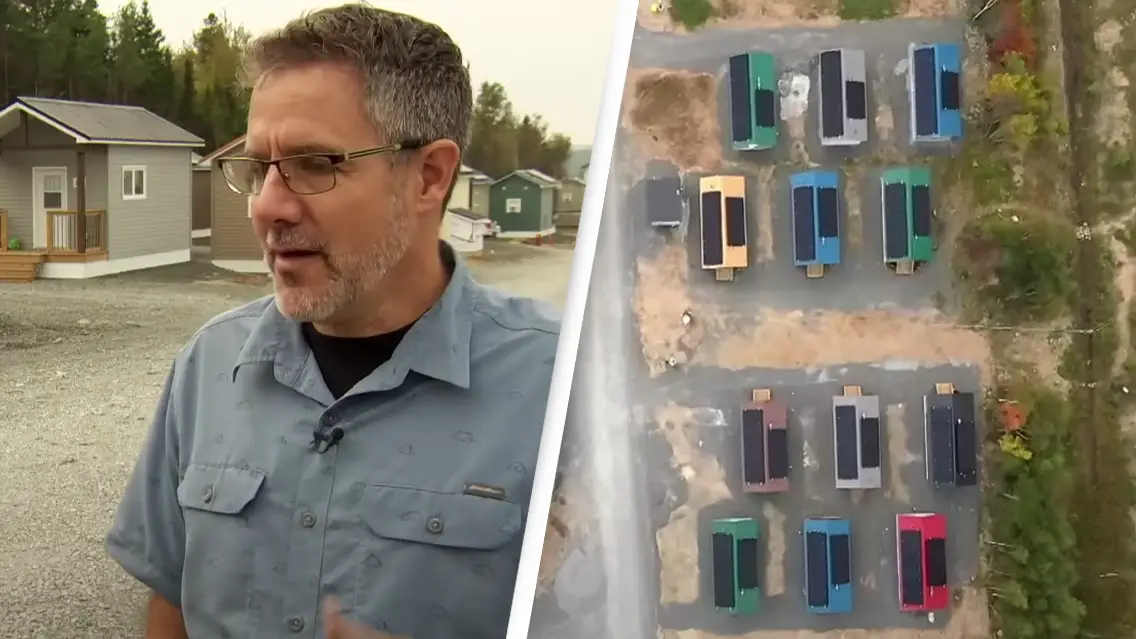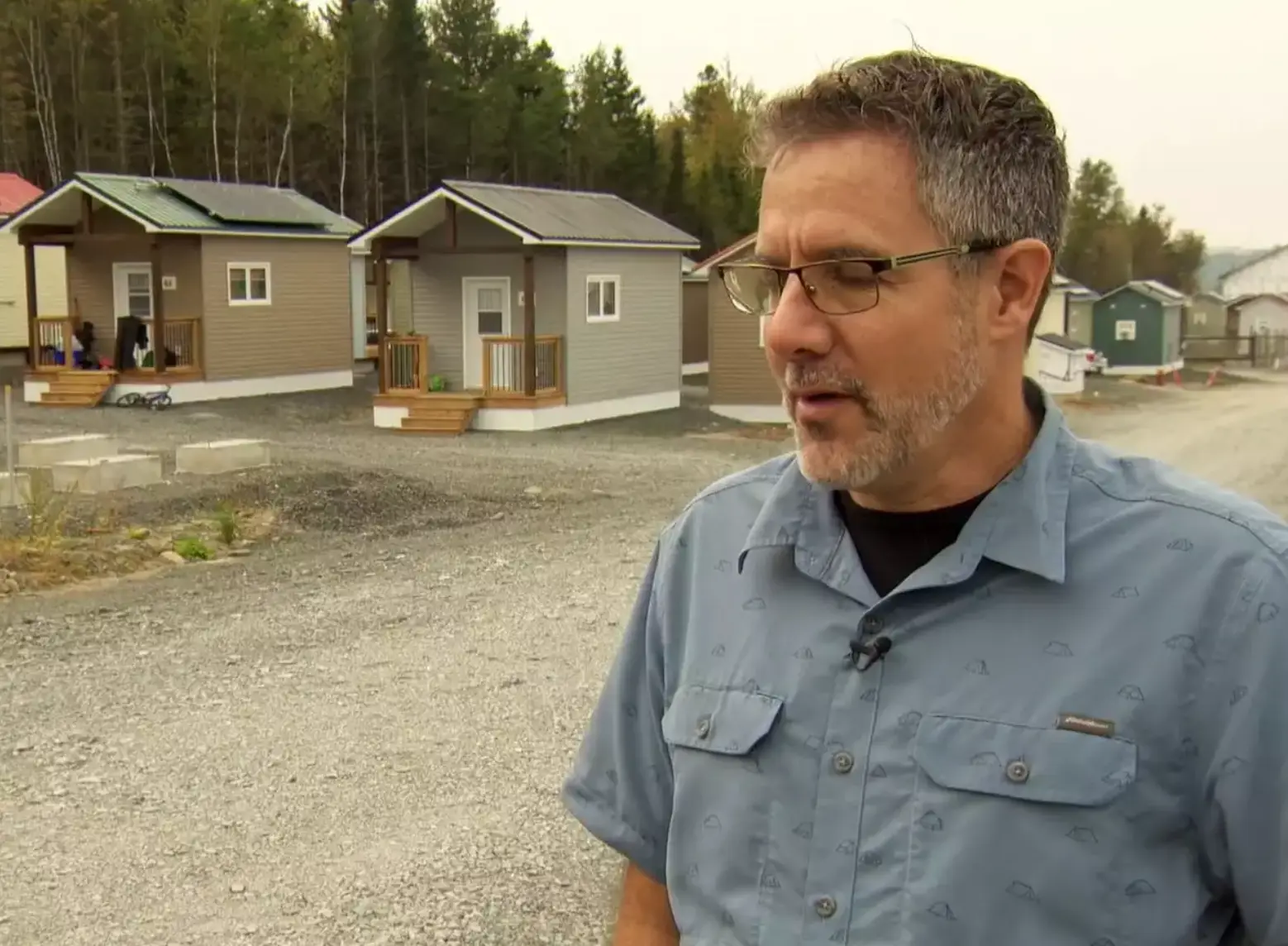
A Canadian millionaire has built 99 'tiny homes' to reduce homelessness in his town.
Marcel LeBrun sold his company for an eight-figure sum and decided to help his local community tackle the prevalent issue of homelessness in Fredericton, New Brunswick, Canada.'
Frederick has 1,800 people who found themselves homeless for at least a day in the past year, according to the CBC.
In an effort to tackle these problems, LeBrun invested $4 million in developing the '12 Neighbours' - a gated community which will ultimately see 99 small homes for the homeless in the New Brunswick city.
Advert
While these homes aren’t too spacious, each small property has space for a kitchen, bed and bathroom.
There’s also a bit of decking to sit on out front and some solar panels on the roof.
I mean, pretty decent.
Speaking to CBC, LeBrun explained the homes will first be put together at a warehouse before being loaded onto concrete blocks that consist of the building's foundations.
He said: "I see myself as a community builder, and really what we’re doing here is not just building a little community, but we’re building a community in a city, like how do we help our city be better?"

He added that these homes will give people a sense of responsibility, and the formerly homeless will unite while living in the gated community.
Aside from the houses, there are plans for a community center and coffee shop, which residents will run.
He hopes for a ‘teaching kitchen’ and a silk printing business for people to work in as well.
Tiny houses are becoming a trend of tackling the homelessness crisis swiftly.
Particularly, in San Jose, California, streets are getting tiny homes made out of repurposed shipping containers.
These containers usually cost around $150,000 per unit for a 100-home project.
Mayor Matt Mahan said this plan offers a solution to California’s housing shortage.
“These are interim solutions to mitigate the impacts because we cannot have this so-called ‘doom loop’ happening because of homelessness, where we lose our employers who are the tax base for cities and then we can’t fund basic services,” he said, as per Bloomberg.
“That’s just not a viable path for us.”
However, some critics believe this is only a short-term solution.
“This ‘we can do it faster and cheaper’ argument that the mayor puts forward, sure, it sounds great when you’re thumping your chest in front of the microphone,” said Jeffrey Buchanan, policy director of the nonprofit Working Partnerships USA, as per Bloomberg.
“But when you actually look at reality, it’s very different.”
Topics: News, World News
